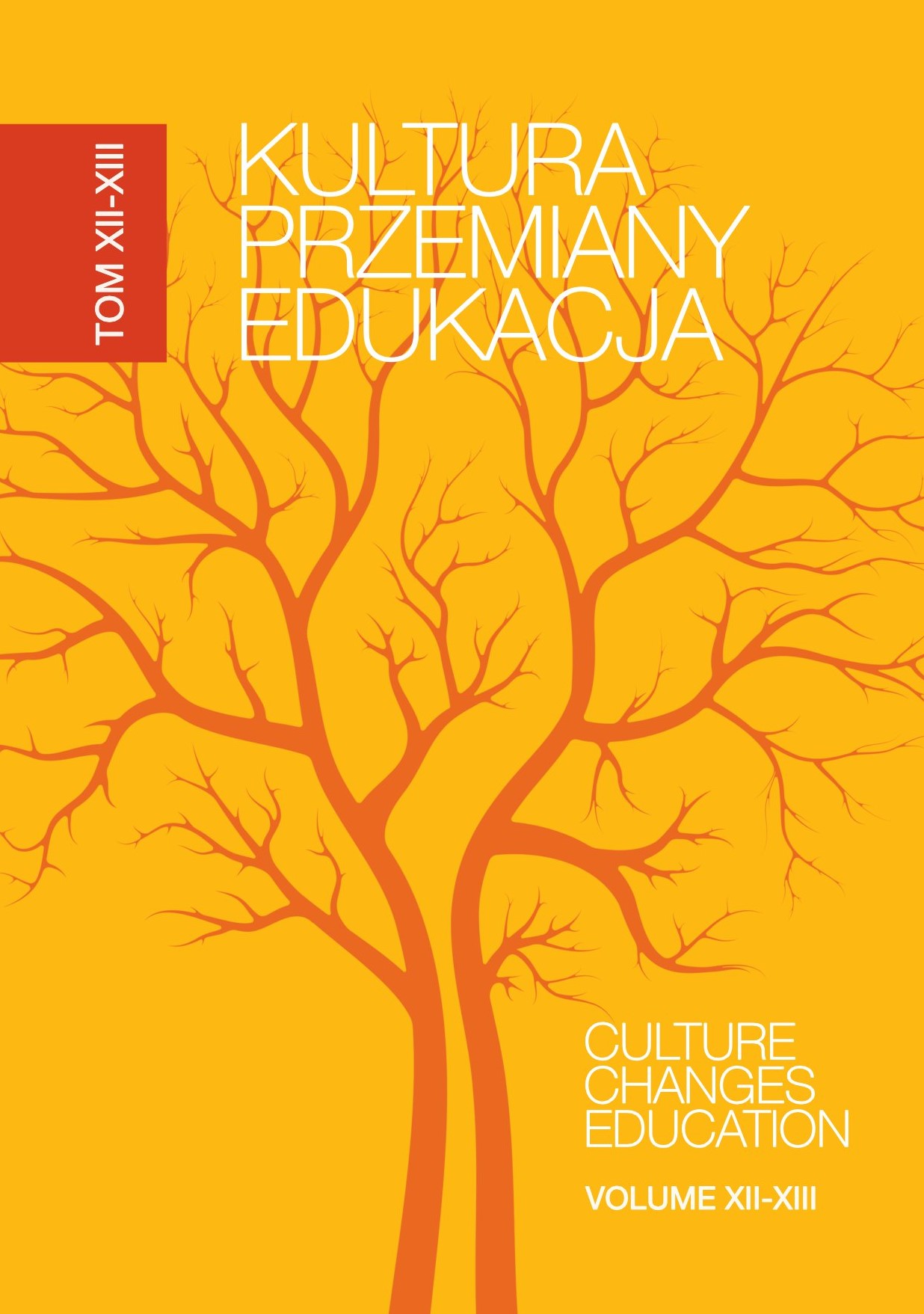Possibilities and methods of using distance learning applications in school practice
DOI:
https://doi.org/10.15584/kpe.2023.12.11Keywords:
ICT, e-learning, education, school, remote educationAbstract
The article presents the possibilities and methods of using applications supporting distance learning. The issues focus on the main others in addition to ICT in the field of didactics of early childhood and preschool education. Part one is a market overview of the children’s ICT development market. Based on parts of the study, solutions were developed which, in the opinion of experts (taking into account age and developmental possibilities), can mostly be used in the first educational age. The last of the main parts of the article, conclusions and recommendations for teachers in the field of comprehensive use of ICT in the educational process.
Downloads
References
Baharudin H., Masnana A., Zain A., The developments and challenges of the integration of interactive whiteboard technology in teaching and learning reading skills for preschool children, „Journal Pendidikan Awal Kanak-Kanak Kebangsaan” 2020, vol. 9.
Batorski D., Dzieci z sieci – dostęp i korzystanie z internetu przez dzieci w wieku przedszkolnym [w:] Małe dzieci w świecie technologii informacyjno-komunikacyjnych – pomiędzy utopijnymi szansami a przesadzonymi zagrożeniami, red. J. Pyżalski, Łódź 2017.
Cavanaugh T.W., eBooks for Elementary School, United States 2014.
Dagdilelis V., Preparing Teachers for the Use of Digital Technologies in Their Teaching Practice, „Research in Social Sciences and Technology (RESSAT)” 2018, vol. 3.
Grabania-Mukerji M., E-learning w edukacji, „Zeszyty Glottodydaktyczne” 2011, nr 3.
Iwanicka A., Od biernego odbiorcy do aktywnego mediakratora – małe dzieci i TIK w świetle badań własnych, „Interdyscyplinarne Konteksty Pedagogiki Specjalnej” 2018, nr 23.
Jakubczak B., Projektowanie zajęć dydaktycznych z wykorzystaniem tablicy interaktywnej SMART board, Kalisz–Konin 2013.
Juszczyk S., Edukacja na odległość – kodyfikacja pojęć, reguł i procesów, Toruń 2002.
Katz A., Making Your Primary School E-safe: Whole School Cyberbullying and E-safety Strategies for Meeting Ofsted Requirements, Great Britain 2015.
Kopciał P., Analiza metod e-learningowych stosowanych w kształceniu osób dorosłych, „Zeszyty Naukowe Warszawskiej Wyższej Szkoły Informatyki” 2013, nr 9.
Koster S., Kuipert E., Volmant M., Concept-guided development of ICT use in ‘traditional’ and ‘innovative’ primary schools: what types of ICT use do schools develop?, „Journal of Computer Assisted Learning” 2012, vol. 28.
Kuźmińska-Sołśnia B., Ziębakowska-Cecot K., Przygotowanie przyszłych nauczycieli do wdrażania nauki programowania w edukacji elementarnej, „Edukacja. Technika. Informatyka” 2017, nr 3.
Łangowska-Marcinowska K., Nauczanie zdalne (e-learning) cechą nowoczesnych technologii w edukacji, „Pedagogika Przedszkolna i Wczesnoszkolna” 2020, vol. 8.
Ordon U., Serwatko K., Kompetencje informatyczne w samoocenie nauczycieli edukacji przedszkolnej i wczesnoszkolnej, „Edukacja. Technika. Informatyka” 2016, nr 3.
Ostrowska M., Sterna D., Technologie informacyjno-komunikacyjne na lekcjach. Przykładowe konspekty i polecane praktyki, Warszawa 2015.
Pineida F., Competencies for the 21st Century: Integrating ICT to Life, School and Economical Development, „Procedia – Social and Behavioral Sciences” 2011, vol. 28.
Pluta K., TIK w edukacji wczesnoszkolnej, czyli rola i możliwości wykorzystania wybranych narzędzi cyfrowych w uczeniu się dzieci klas młodszych, „Kwartalnik Edukacyjny” 2021, nr 104–105.
Prządka W., Analiza porównawcza narzędzi e-learningu, „Journal of Computer Sciences Institute” 2017, nr 3.
Pyżalski J., Klichowski M., Przybyła M., Szanse i zagrożenia w obszarze wykorzystania technologii informacyjno-komunikacyjnych (TIK) ze szczególnym uwzględnieniem aplikacji mobilnych (TIK-mobApp) przez dzieci w wieku 3–6 lat, Poznań 2014.
Rakhimovich I., Ibrokhimovich I., The Use of Information Technology in Primary Schools, „Texas Journal of Multidisciplinary Studies” 2021, vol. 2.
Salehi H., Salehi Z., Challenges for Using ICT in Education: Teachers’ Insights, „International Journal of e-Education, e-Business, e-Management and e-Learning” 2012, vol. 2.
Śniadkowski M., Wyniki badań interdyscyplinarnych w aspekcie edukacji techniczno-informatycznej i bezpieczeństwa, Lublin 2020.
Students, Computers and Learning: Making the Connection, http://dx.doi.org/10.1787/9789264239555-en (dostęp: 25.04.2023).
Tondeur J., Scherer R., Baran E., Sissiq F., Valtonen T., Sointu E., Teacher educators as gatekeepers: Preparing the next generation of teachers for technology integration in education, „British Journal of Educational Technology” 2019, vol. 50.
Tuczyński K., Criteria for Evaluating the Quality of e-Learning Courses in Higher Education, „Edukacja. Technika. Informatyka” 2017, nr 4(22).
Uluyol Ç., Şahin S., Elementary school teachers’ ICT use in the classroom and their motivators for using ICT, „British Journal of Educational Technology” 2016, vol. 47.
Wambiri G., Ndani M., Kenya primary school teachers’preparation in ICT teaching: teacher beliefs, attitudes, self-efficacy, computer competence and age, „African Journal of Teacher Education” 2016, vol. 5, p. 3.
Warchoł T., Wsparcie edukacji formalnej z wykorzystaniem edukacji pozaformalnej – warsztaty interaktywne, „Edukacja. Technika. Informatyka” 2017, nr 2(20).
Zieliński Z., E-learning w edukacji, Gliwice 2002.
Downloads
Published
How to Cite
Issue
Section
License
Copyright (c) 2023 KULTURA – PRZEMIANY – EDUKACJA

This work is licensed under a Creative Commons Attribution-NoDerivatives 4.0 International License.


